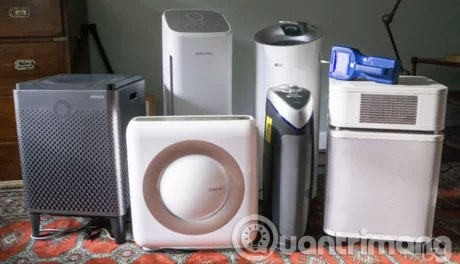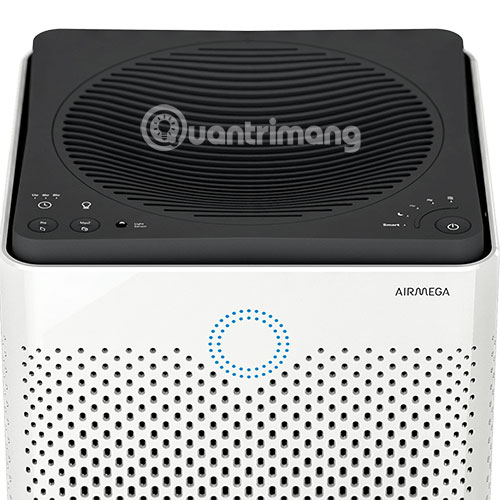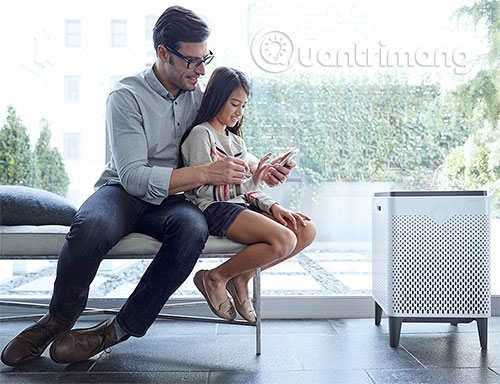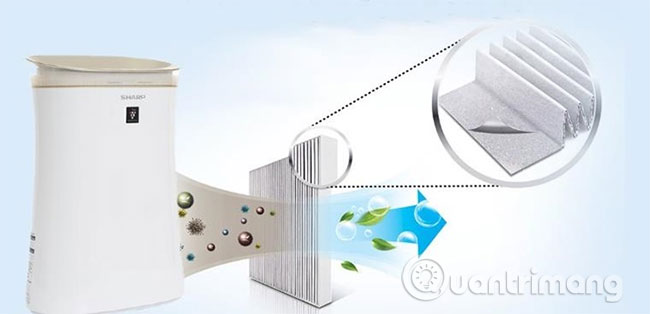5 things to consider when buying an air purifier
Indoor air is often more polluted than outside air. Because we spend most of our time indoors, exposure to poor air quality puts us at risk for some diseases.
Using an air purifier will help create cleaner, healthier air in your home or office, so you can enjoy better air quality.
What factors to consider when choosing to buy an air purifier? You need to research a little to find the best air purifier for your space. Answer these questions before you buy an air purifier!
What factors should be considered when buying an air purifier?
- 1. Why do you need an air purifier?
- 2. How sized do you need an air purifier?
- 3. What kind of feature do you need on an air purifier?
- 4. Where will you put the air purifier?
- 5. The level of maintenance for air purifiers
1. Why do you need an air purifier?
When choosing an air purifier, first consider the indoor air quality. If you're looking for ways to improve air quality in general, consider models with high-efficiency HEPA filters or air filters, proven to eliminate 99.97% of allergens. in normal air, with a size of 0.3 microns or more, including things like pollen, dust, dust mites, mold spores, ragweed and pet scales. HEPA air purifiers are considered to be the most efficient air purifiers on the market.

Specific needs
- Allergies : If you are allergic, you should choose an air purifier designed to reduce allergy symptoms. They often have multiple filters, including HEPA filters, to remove allergens in the home.
- Asthma : If you have asthma or if your symptoms become more severe with odors and chemical contaminants, you should consider the type of air purifier for people with asthma or de-air cleaners. odor and chemicals. These air purifiers have additional odor and chemical filters, as well as HEPA filters, to eliminate allergenic particles.
- Smoke: Another option, a deodorizing air purifier specifically designed to remove smoke, soot heaters and other types of smoke, can worsen existing respiratory illnesses or cause a difficult odor. bear in the environment you live in.
- Pets : For those who are allergic to pets, consider HEPA air purifiers, such as GermGuardian's 3-in-1 HEPA air cleaning system UV-C HEPA, designed to remove flakes on animal skin, odors and pet hair.
- Chemical sensitivity: If extremely sensitive to chemicals, you might consider an MCS (Multiple Chemical Sensitivities) air purifier. These models filter out many odors and chemicals, often made of materials that do not release chemicals into the air, aggravating your allergy symptoms.
2. How sized do you need an air purifier?
To select an air purifier that is sized to fit your needs, consider the area of the room you want to purify. You can calculate the area by measuring the length and width of the room and then multiplying these two numbers together. With the result of this calculation in hand, look for an air purifier that can cover that area enough. Look for this information in the specifications of the air purifier provided by the manufacturer.
- How to choose an air purifier according to your room size?

If you have allergies or asthma and are looking for an air purifier to help control your symptoms, you should also consider the speed of ACH. ACH (Air Change per Hour) refers to the number of times the air purifier is able to filter the entire air volume in the processing space per hour.
The air purifier that can clean the air in the processing space at least 4 times per hour is best for people with allergies and asthma. The 4-speed filtration of the entire air volume in the processing space per hour also ensures that the purifier completely cleans the air and removes as many allergens as possible.
When buying an air purifier with ACH, look for 'Room Size for 4 ACH' specifications on the product pages. This data section gives you the recommended room size for the purifier to achieve 4 filtration of the entire air volume in the processing space per hour. Combine this number with the operating range (in area) to select a model of the appropriate size. Alternatively, you can use the air purifier's CFM rate (square feet of air treated per minute) to calculate the appropriate area for the air purifier to achieve 4 times the total air volume filtration. in the processing space every hour. Use the following instructions:
- Small sized machines: These air purifiers are designed for personal space or rooms up to 299 square feet (28 square meters).
- Medium sized machines : Suitable for rooms with areas from 300 to 699 square feet (28 - 65 square meters).
- Large sized machines : Use these air cleaners in rooms of 700 to 1900 square feet (65 - 177 square meters).
- It can filter the whole house air
3. What kind of feature do you need on an air purifier?
After choosing the type and size of air purifier you need, consider whether you like any special features. Additional features may include wheels, handles for easy movement, digital control, remote control, multiple fan speeds, filter change indicator, and a timer. process, air quality sensor, etc.

These features add operational convenience and give you greater control over the performance of the air purifier. You can also find WiFi air purifiers, which can be controlled from the phone.
To save money and electricity, look for air cleaners rated under the EPA energy star label program.
4. Where will you put the air purifier?
In most situations, you should put the air purifier in your bedroom because that's where you spend most of your time. Remember that handheld air purifiers are primarily designed to clean the air in just one room, so you may need to invest in more machines for other rooms. Alternatively, you can choose a product with wheels, handles and other mobile features to easily move it from room to room.

Air purifiers for whole homes are becoming popular options. These devices connect to the house's current HVAC system to purify the indoor air when you heat, cool, or ventilate the home.
5. The level of maintenance for air purifiers
If you are using an air purifier with a filter, you should replace the filters according to the manufacturer's recommendations to maintain the highest level of pollutant removal for the device. Depending on the amount of air filter your device uses, you may need to change them at different times. For example, the HEPA filter in an air purifier can last about 1 year, while the activated carbon filter only lasts for 6 months and the raw filter (if equipped) only has a 3-month life.

When buying an air purifier, be sure to consider the cost and frequency of future filter replacement. The typical filter life of all filters is usually listed in the product specifications.
For simplicity, some air purifiers use combination filters. In addition, other types of air purifiers, such as the AirFree air sterilizer, use heat or ultraviolet light to clean the air, kill germs and allergens. These models never need to replace filters, so it is more convenient for users.
For more information on a specific air purifier or other air treatment solutions, browse the Meta.vn products here.
Wish you find the right product!
You should read it
- ★ Top 5 best air purifiers for air-conditioned rooms, the weather is dry
- ★ What is the best RO water purifier?
- ★ 5 Reasons you should buy Daikin air purifier right away to protect your family's health
- ★ Should an air purifier be used in the bedroom?
- ★ Japanese domestic air purifier and things to know before making a purchase